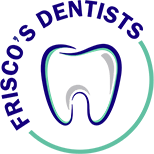Bad breath–clinically called halitosis–can be more than a simple health problem; it can be a social problem as well. Chronic sufferers of bad breath can assure you that resolving bad breath is more complicated than brushing your teeth regularly. It can be masked with mouthwashes, sprays, and tons of breath mints, but they only do just that for bad breath: mask it. True halitosis is actually a symptom of another condition.
Poor dental hygiene is commonly flagged as the cause, but if you brush and floss regularly, this factor can be weeded out. Halitosis can also be caused by certain medications, diet, diabetes, acid reflux, lactose intolerance, tobacco use, dry mouth (xerostomia), or other periodontal problems.
We all know that eating onions and garlic and drinking coffee can create temporary bad breath, but if you consume hefty amounts, then the odor essences can actually be absorbed into your bloodstream and transferred to your lungs. From there, you breathe out your mouth and voila…bad breath. Some types of cheeses and spices can also create a similar effect if consumed in large quantities. If your diet is low in carbohydrates, like the Atkins diet, then your body will produce ketones, which can cause bad breath. When you visit your dentist about your halitosis, be sure to discuss your current eating habits and diet.
Bad breath can also be a symptom of another infection or disease that you may or may not know about. Some examples are diabetes, tonsillitis, bronchitis, rhinitis, pharyngitis, gastro-esophageal reflux disease (GERD), Sjogren’s syndrome, liver disease, and kidney disease. If you practice good oral hygiene, visit your dentist regularly, and have gotten a clean bill of dental health–i.e. no periodontal problems or other dental issues–then you need to talk to your medical physician as soon as possible. All of these other conditions can only be confirmed by your physician.
If you have chronic bad breath, the first step is to talk to your dentist. Together, you can formulate a plan to combat this embarrassing condition and decide if you do indeed need to see a medical doctor.

